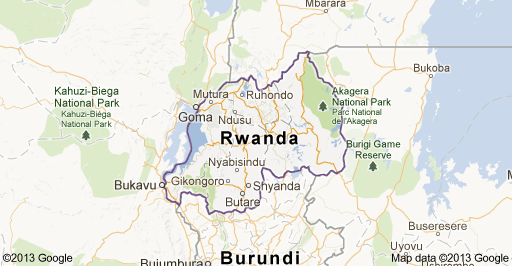RWANDA / UGANDA SAFARIS
4 Days / 3 Nights Virunga Lodge……From USD pp sharing
4 Days / 3 Nights Sabyinyo Silverback Lodge……From USD pp sharing
4 Days / 3 Nights Bwindi Lodge – Uganda…..From USD pp sharing
4 Day / 3 Nights Gorilla Mountain View Lodge – Rwanda….From USD pp sharing
4 Day / 3 Night Buhoma Lodge – Uganda….From USD pp sharing
Gorillas occur only in Africa. The species Gorilla is subdivided into three recognized sub species: the western lowland gorilla, which occurs in several countries in West Africa; the eastern lowland gorilla, which inhabits remnant forest areas along the eastern border of Zaire; and the mountain gorilla which occurs only in two separated and extremely small populations on and near the Ugandan, Zairean and Rwandan borders. All three are endangered.
Mountain gorillas are mainly terrestrial and quadrupedal; they walk on the soles of their hind limbs but pivot on the knuckles of their forelimbs. Gorillas are predominantly herbivorous, feeding mainly on the leaves, stems and roots of specific plants. Groups are strongly bonded; the same individuals typically travel together for years at a time. Groups are led by an adult male or ‘silverback’. All males, once they are they mature, become silverbacks, developing very distinct characteristics, including an impressive silver saddle extending across their back from shoulders to rump. However not all silverbacks are successful enough to ultimately gain leadership of a group. The size of a gorilla group varies from two to as many as 35 individuals. Average group size is about nine. In addition to a dominant silverback and occasionally one or two subordinates, the group consists of several adult females, sub adults, juveniles and infants.
Group daily activity patterns follow a relatively simple routine. Awaking in their night nests after daybreak, gorillas begin foraging and continue to feed slowly and selectively until a mid-morning rest period, during which individuals sleep, groom each other and, if younger, play. The rest period may last more than an hour, after which feeding once more begins. An afternoon rest period follows several additional hours of feeding. The group wraps up the day with another feeding bout, and just before dusk, each gorilla begins constructing a nest in which it will sleep throughout the night. Infants sleep with their mothers
Gorilla Trekking through the misty forests requires patience and stamina, often walking for hours in the mud and the wet. Finally meeting them in the undergrowth is an inspiring moment. Quietly chewing away at their vegetarian delicacies, they seem like a marooned human family. The tender grooming and firm disciplining of their offspring seems all too familiar. The gorilla family cast a wary glance at the sudden human intrusion into their private world, but is comforted by the clucking made by the trackers. When provoked, the noisy but harmless silverback grunts, screeches, bares his fangs and beats his chest, before slithering off with attendant females, offspring and other mature males.
Parc National des Volcans (PNV) in Rwanda and Bwindi in Uganda, offer very different trekking environment. The vegetation is Bwindi Park is more dense (it is called Bwindi Impenetrable Forest) which gives it a unique atmosphere. The hill sides are more steep in Bwindi so it is usually considered a more difficult trek. But the difficulty of gorilla tracking also depends what gorilla group you get, how far they are, and the weather…
The parks both offer spectacular landscapes and a rich variety of wildlife and bird species.


